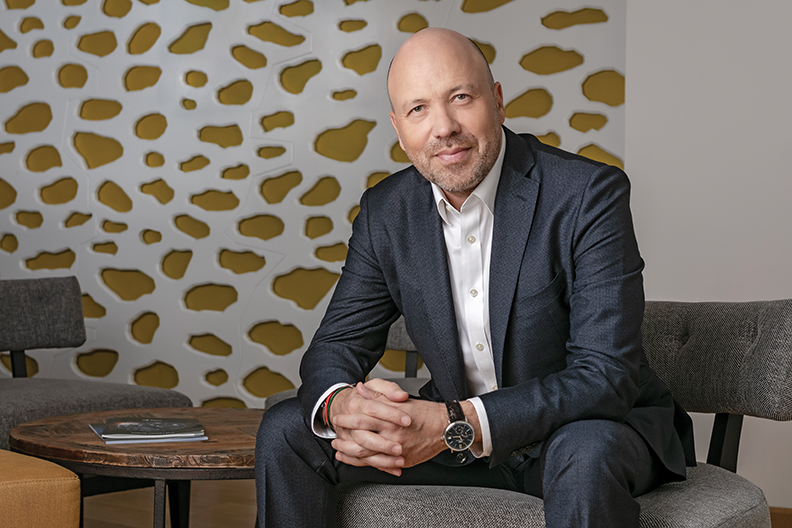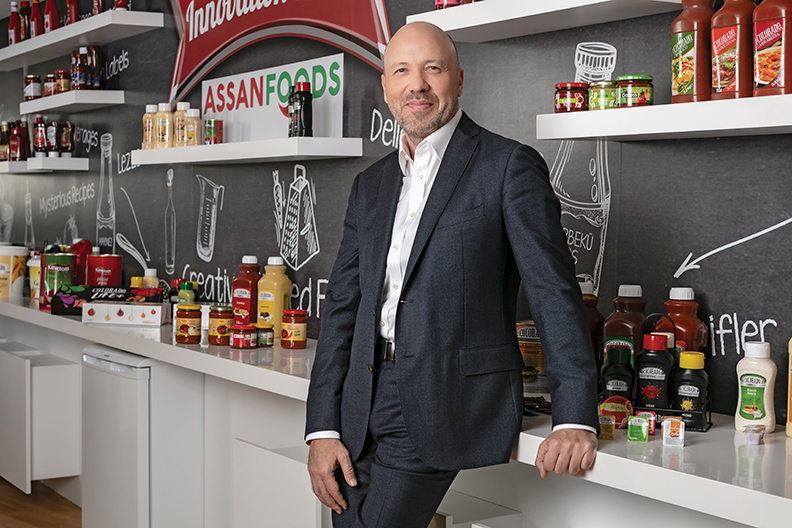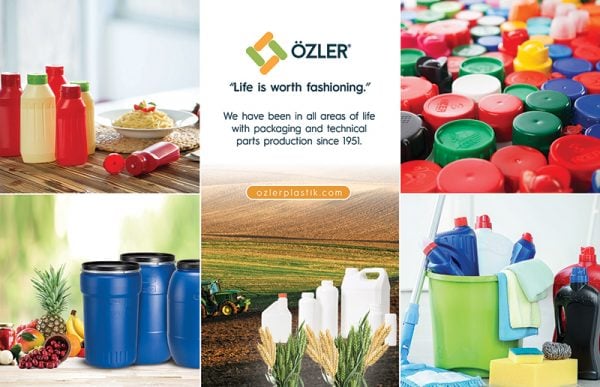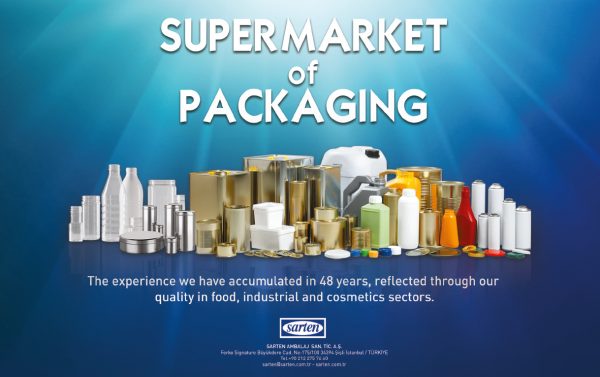With a career spanning 25 years, including 16 years in leadership positions, Hakan Kocoglu is uniquely qualified to lead Assan Foods – Turkey’s top producer of ketchup, mayonnaise and hundreds of other sauces. This has less to do with his interest in ketchup than in his ability to navigate the complex environments of emerging markets, regardless of the industry.

“I define myself as a ‘progressive’ executive and manager,” he says. “The core of my focus is on maximising shareholder value, through transition, restructuring and formulating new strategies.”
He did this previously as CEO of Istanbul’s Bahcesehir College where, after the company was acquired by the Carlyle Group, Hakan came in briefly to initiate a five-year growth strategy. He increased the number of K-12 schools from 64–83 and grew revenue by 46% – from US$48 million (€41.2 million) to US$70 million (€60 million) – in the span of a year.
Since ascending to the post of General Manager at Assan Foods in 2014, Hakan has brought the same aggressive drive for growth, investing heavily in research to identify and package the flavours people want and delivering its products to new markets around the world, despite some pesky barriers.
“Growing business with our customers while growing customer satisfaction is a very important strategic objective for us,” he says. Under Hakan’s leadership, the company’s profits have risen 30%, and sales revenue has tripled.
He attributes this to the “bold entrepreneurial spirit” he brings to the company and his implementation of numerous business models simultaneously, ensuring multiple channels of revenue flowing into Assan’s many business segments.
For instance, Colorado, its line of premium sauces – which includes ranch, barbecue, hot chilli, honey mustard, yoghurt, buffalo and several other sauces – has seen astronomical success as both a retail and out-of-home product in dozens of countries.
“Launching Colorado to global competition and expansion in international markets has been a key objective for me since taking responsibility of Assan Foods, and today, it is more than living up to my expectations,” Hakan says.
“Our R&D capabilities, matched with our understanding of markets, competition and consumer trends around the globe, are the key to Colorado’s success. With Colorado, we are boosting everyday tastes and experiences with classic recipes, innovative novelties and local touches.”
With products like these, Hakan aims to hit US$250 million (€215 million) in annual sales by 2025. The next steps in his strategic operational vision involve permanently placing Assan Foods among the best known and preferred producers in all the continents it operates, through sustainable excellence in product and service quality, while being a benchmark company for strategic creativity, operational excellence, teamwork and talent improvement across industries.
“Our main shareholder Kibar Group’s industrial investment to date exceeds US$57 million [€47 million]. However, the nucleus of innovation consists of people. At Assan Foods, investments in production, systems, technology and people will always go hand in hand as a path to sustained success,” Hakan says.
Running a fast-growing condiment company, however, is not without its challenges. In Turkey, which is the world’s largest producer of industrial tomatoes, countless livelihoods can rise and fall along with the weather.
“History keeps teaching us that nature is never 100% predictable and, therefore, neither is agriculture,” Hakan explains. “For instance, Turkey is not a land of hurricanes, but a strong storm can cause up to 15% losses to an entire season’s yield. With so many variables at hand, establishing sustainable, win–win relationships between industry and the farmers is not an easy job.”

To nurture these relationships, Hakan has launched Assan’s Smart Farming Project, which monitors the development of tomato seedlings, and collects important data through meteorology stations and sensors placed throughout the fields of the Karacabey Plain.
The system enables the region’s farmers to produce high-quality tomatoes using 25% less water and 35% less pesticide than they used previously “Additionally, we are conducting a corporate responsibility initiative to improve the lives of nomadic seasonal agricultural workers during the tomato season,” Hakan says.
“This year, we distributed thousands of hygiene packs to farmers to help them protect themselves from COVID-19.” The unexpected effects of the pandemic have been the most serious obstacle the company has faced. Orders from restaurants, caterers, patisseries, delis and even school canteens and military barracks plummeted overnight, delaying Hakan’s growth objectives.
Nonetheless, he has been determined to focus on the silver lining. For instance, severe outbreaks in the EU have caused supply shortages, allowing Assan Foods to finally enter that market, despite regulatory disadvantages.
“I consider agility to be one of the defining characteristics of my leadership style, and the challenges stemming from COVID-19 present an opportunity to show how important agility can be in an unpredictable context,” he says. “We have turned our strategies and core strengths into agile actions, reinterpreting classic and universal tastes with local touches.”
Proudly supported by:




